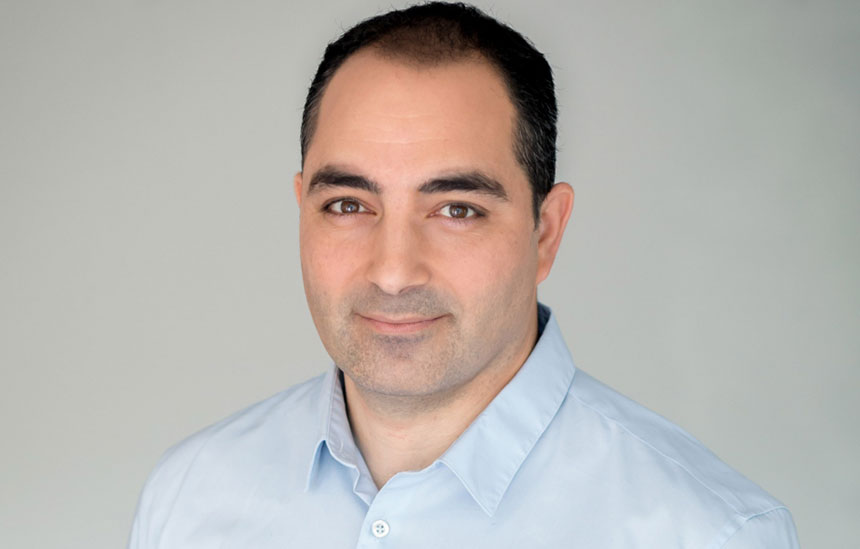Exclusive interview: H2O Global News editor Siôn Geschwindt, spoke to IDE Technologies NSW Process Department Manager Roi Zaken Porat, about the recent installation of a cutting-edge reverse-osmosis plant on the tiny Caribbean island of Bonaire.
The Caribbean Archipelago is made up of over 7,000 islands, scattered over a vast expanse of ocean between North and South America.
Some of the larger, more mountainous islands are fortunate to receive enough rainfall to meet their needs, but others are not so lucky. With limited rainfall or groundwater supplies, many islands rely on desalination to meet the growing water demands of residents, agriculture, and industry.
Believe it or not, desalination has been practised in the Caribbean for over 100 years, firstly in the form of crude Multi-Stage Flash Distillation (MSFD) technology, and later through more advanced Seawater Reverse Osmosis (SWRO). This technology is now more important than ever given the effects of climate change.
According to the IPCC, islands will be impacted disproportionately by climate change, with many nations already experiencing increased droughts and sea-level rise – reducing the quantity of freshwater.
The tiny Dutch Caribbean island of Bonaire, located just off the coast of Venezuela, is one island that relies on desalination to provide the water it needs.
Bonaire has been desalinating water for some time, but in December 2021, IDE Water Technologies, a global leader in water treatment solutions, successfully launched a new state-of-the-art SWRO plant on the island.
WEB Bonaire, the island’s electricity utility and IDE worked together on the project, ensuring it remained on schedule despite the challenges posed by the COVID-19 pandemic.
Through this partnership, WEB Bonaire and IDE were able to design and build the facility under the COVID-19 constraints and complete the entire facility within a year and a half.
To find out more about the project, we caught up with process engineer, team leader, and Non-Seawater Process Department manager at IDE Technologies, Roi Zaken Porat.
A graduate of the Technion (Israel’s Institute of Technology), Roi has significant expertise in reverse osmosis and thermal desalination, nano-filtration and industrial wastewater management, specialising in Zero Liquid Discharge solutions (ZLD), and is actively involved with some of IDE’s largest water treatment projects.
Why was the launch of this desalination plant so important for Bonaire in particular, and island nations more broadly?
The launch of this desalination plant was so important for the Caribbean Island of Bonaire since, as is the case in many other island nations, adequate potable water supplies can only be provided through reverse osmosis (RO) desalination.
Bonaire’s population, in particular, has grown rapidly over the last 10 years, putting increased pressure on the island’s water supply. As a result, we partnered with WEB Bonaire in order to transform the island into a more sustainable, prosperous, and self-sufficient region over the long term.
How much water does the plant produce each day? Is the water billed to customers at point of sale or added to the municipal water supply?
To meet the demands of Bonaire’s more than 22,000 inhabitants, we developed a facility that produces 5,600 m3/day, in addition to an existing plant that produces 1,600 m3/day—for a total of 7,200 m3/day. The water is delivered to the consumers, which is then billed by the water authority.
What were some of the logistical challenges and how did you overcome these?
Typically, it is quite challenging to deliver equipment to any island, and Bonaire is particularly difficult due to its remote location and limited traffic to and from the island. During the COVID-19 pandemic, the challenge was magnified as IDE had to continually examine and reassess the situation due to a number of logistical issues.
As a result, IDE had to regularly check the effects of supply chain issues on each supplier, turn to supplier countries that were less impacted by the pandemic and reserve shipping containers months prior to shipments. Despite these difficulties, we were very pleased with how we were able to come together with WEB Bonaire to overcome them, ensuring this project didn’t experience any delays or setbacks due to COVID-19.
A high angle shot of salt pans in Bonaire, Caribbean
Do you think climate change will increase the need for desalination solutions?
Most certainly. Climate change and global warming have had, and will continue to have, a massive impact on the world’s natural resources and water availability. As more and more countries feel the strain on their water supply, they will increasingly turn to water treatment solutions such as desalination.
However, desalination requires large amounts of energy, which contributes to CO2 emissions. While the benefits of desalination are abundant, it has been a challenge in the industry to lower the technology’s power consumption, and thus reduce its carbon footprint.
What makes this plant different?
IDE’s proprietary desalination technology has been able to do just that. The Bonaire desalination plant leverages a revolutionary design, with the lowest power consumption of all the area’s plants (2.59 kwh/m3, for reference).
IDE has been able to design a state-of-the-art desalination plant with high-efficiency pumps, a piping design with minimal pressure loss, new Eco-platinum membranes from Dupont and relatively low recovery (40%). These capabilities have allowed our plants to create an environment with very low power consumption.
It is important to mention that the plant is a chemical-free plant, which, as it implies, means that no chemicals are used—not even an anti-scaling agent. This is due to IDE’s state-of-the-art design and proprietary Direct Osmosis Cleaning (DOC) system. What’s more, the plant was built with IDE’s modular units that were pre-fabricated outside of Bonaire and brought to site fully assembled.


